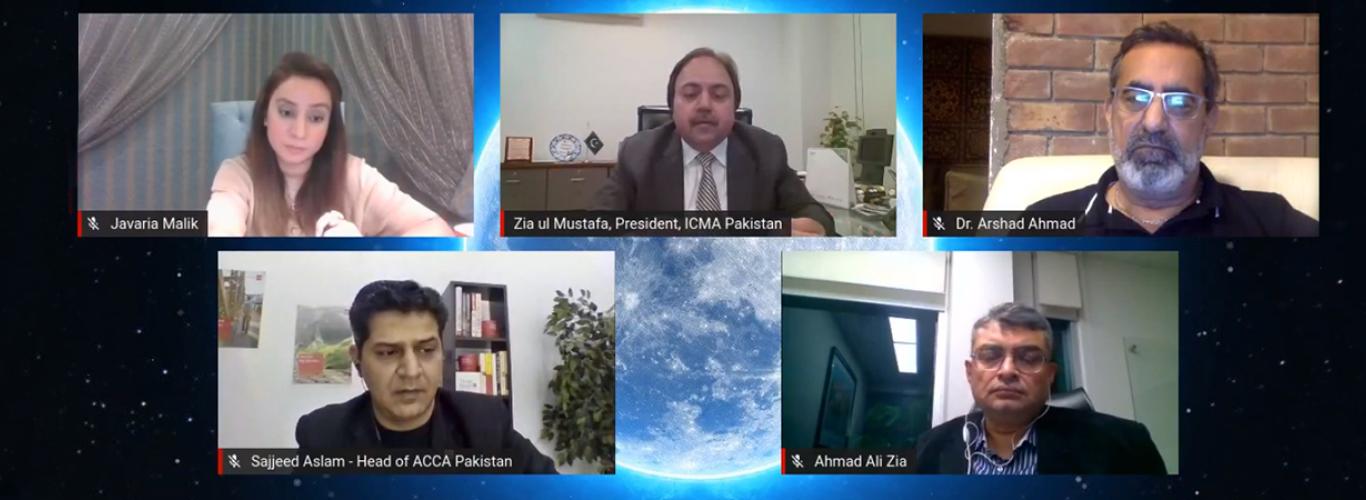LUMS Vice Chancellor Takes Part in ‘Global Ethics Week 2020’
LUMS Vice Chancellor, Dr. Arshad Ahmad was part of a panel discussion titled, ‘Reimagining Future Skills in the Age of AI and Data’ on October 21, during which he spoke about how essential it is to design learning and development programmes at educational institutions to prepare professionals for tomorrow’s challenges.
The discussion was held as part of the ‘Global Ethics Week 2020’ organised by ACCA Pakistan where leaders in business and academia came together to debate on how best to prepare for an ethical future and ensure sustainability.
Dr. Ahmad expressed his views at the session and said, “That’s a broader issue to how young people develop, and how students develop. And that I think requires a certain kind of mindset. If you have a growth mindset, you’re going to be a person who’s looking for challenges and is embracing these challenges. You will want to persist in the face of setbacks. In accounting, repetition is part of the progression, and only a growth mindset can facilitate that. We have to prepare educational systems that are going to promote this mindset, which we try to do at LUMS.”
He also talked about the need for a core curriculum that cuts across disciplines so they are interdependent. “This will mean not getting bogged down by building walls around professions or even around the educational systems that get us there. We will get a very broad open view. We have to open the window extremely wide here and not protect our own domains but rather become interdependent and integrate these disciplines so that our students benefit from them. This is a great challenge for all educational institutions and that doesn’t stop at universities and obviously continues on to professional development.”
A student, to be better prepared for the future, needs a grounding in all disciplines as well as a set of values that will stick long after their education is over. “Values of hard work, persistence and integrity; these are essential to prepare our students for the real world,” stressed Dr. Ahmad.
Dr. Ahmad concluded that the system needs to be recreated and changed by those at the helm. “We are privileged because we have leadership positions and can influence other people especially in academia. We are the ultimate custodians of the younger people. We must provide them an atmosphere where difficult questions can be asked and where different opinions can clash.”























